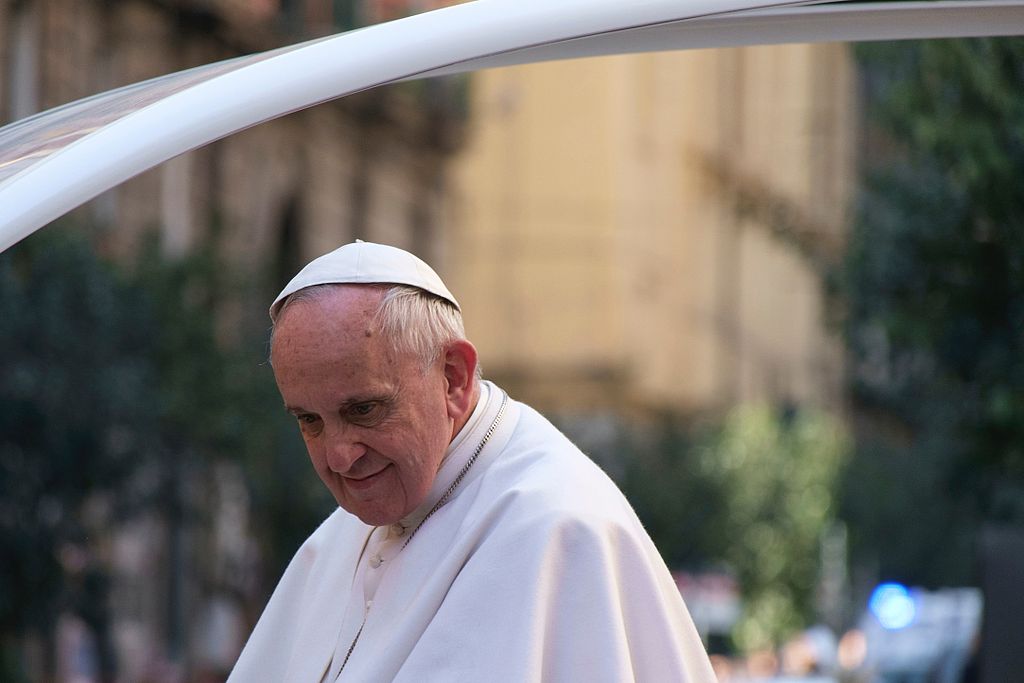Politics in the United States has become defined by a single modality of (dis)engagement: polar opposition, writes Sitra’s Justin Cook on our research team’s blog Weekly notes.
Republican or Democrat. These are the only two identities available to politicians in Washington (and increasingly to voters across the country). And more than ever, the ideological density of each party makes nuance and overlap impossible according to a new kind of iron law of no compromise largely ushered in during Obama’s presidency.
But in a way, this is not so unusual. Politics has always been divisive in this country of great scale, wealth and distance from much of the rest of the world. What is new is that we the people have come to see everything through the bipolar lenses of politics. Morality, principle, even science have been supplanted by the political frame. The political and the real have become indistinguishable.
Meanwhile, views of opposing political parties have become increasingly negative—a phenomenon called negative partisanship—where one’s view of their own party has remained relatively constant since the 1980s, while their view of the opposing party has become much more hostile. Even the Supreme Court, the country’s great arbiter, has become partisan as the justices’ decisions predictably align with political party, rather than precedent or principle.
Last week, Pope Francis adeptly* entered our national ferment. He is a disarming figure. And highly problematic for the hyper-charged political environment in the US. The impacts and political whiplash continue to rumble across the country; from the striking resignation of the Speaker of the House of Representatives, to his insistence on quick action on issues central to each party such as climate change on the left and religious liberty on right, to the still developing story of his meeting with the polarizing clerk Kim Davis.
On the issues, the Pope’s views do not fit neatly with American categories (which as stated above, are now by definition political). And maybe, just maybe, this will be the lasting legacy of his visit: he helped to break the reductionist fever that has made every complex issue simple, and in turn, solved by a simple solution. Immigration: walls. Capitalism: more. Climate change: ?
The Pope challenged us to see our issues in three dimensions (perhaps four dimensions with his call for urgent action). He reminded us that each issue for which we have only provided political definitions, must be viewed through an ethical frame. This ethical frame emerges from the profound impact of both action and inaction on people and the planet. In the Pope’s words: “The future freedom and dignity of our societies depends on how we face these challenges.”**
Climate change: In the Pope’s meeting with American Bishops in Washington DC, he mourned “the environment devastated by man’s predatory relationship with nature – at stake in all of this is the gift of God, of which we are noble stewards but not masters.” For Republicans, the majority of whom are conservative Christians and who apparently are the only conservative party globally to deny the legitimacy of climate science, phrases such as this must provoke severe internal dissonance. But Democrats are not off the hook either. In his encyclical, Pope Francis derides the “throwaway culture” that leads to the destruction of the environment. Nearly every American is guilty here because he means this in both a literal sense (too much waste) and in terms of a moral failure (profits over people).
Immigration: The US Congress leads what seems to be a global immigration policy dysfunction. For this body, Pope Francis saved his strongest challenge:
“On this continent, too, thousands of persons are led to travel north in search of a better life for themselves and for their loved ones, in search of greater opportunities. Is this not what we want for our own children? We must not be taken aback by their numbers, but rather view them as persons, seeing their faces and listening to their stories, trying to respond as best we can to their situation. To respond in a way which is always humane, just and fraternal. We need to avoid a common temptation nowadays: to discard whatever proves troublesome. Let us remember the Golden Rule: ‘Do unto others as you would have them do unto you’.”
Again here, Francis asks us to see the human dimension of the challenge and therefore the moral imperative to act.
Capitalism: To Congress, the Pope repeated a line from his encyclical: “Business is a noble vocation, directed to producing wealth and improving our world. It can be a fruitful source of prosperity for the areas in which it operates, especially if it sees the creation of jobs as an essential part of its service to the common good.”
This is a carefully balanced and important reminder that business is not just concerned with profits, but is a critical source of human dignity. In the context of the encyclical, the lines read remarkably apolitical. But in the same breath in front of Congress, Francis continues: “The common good also includes earth…” Constraints on capitalism in any form and for any cause are antithetical to the positions of most Republicans and some Democrats in Congress, especially in the midst of a presidential election. The fullness of his counsel—capitalism’s great strengths and its profound risks—must have felt like whiplash to everyone listening in the House chamber.
Abortion and Marriage: Although very different issues, the Pope’s messages on abortion and marriage were deeply challenging to the left who eagerly embraced his views on climate change, immigration, capitalism, the death penalty and other divisive topics. His view that we must exercise absolute respect for life in all of its stages was unequivocal and passionately argued. Even Democrats fully vested in preserving the right to choose, must have had a fleeting moment of questioning. On marriage, the Pope argued to Congress: “I cannot hide my concern for the family, which is threatened, perhaps as never before, from within and without. Fundamental relationships are being called into question, as is the very basis of marriage and the family.” This seems to affirm the views of religious conservatives incensed by the Supreme Court’s decision on gay marriage. But then in Philadelphia, Francis complicates the issue with language drawn directly from scripture: “God who from the very beginning of creation said: ‘It is not good for man to be alone’ (Gen 2:18).” Relationships are elemental to human life. Perhaps the specific contours of the relationship are a secondary concern.
It has been widely reported that during his visit to the US, Pope Francis carefully navigated “a uniquely American minefield of political and religious divisions…” I think this is only partially true; the only conclusion that can be drawn is that the political frame has supplanted all others. Rather, Francis challenged us to embrace complexity. His gentle admonitions encouraged us to look for the multiple valencies inherent in society’s greatest challenges and reminded us of our shared obligation to work toward human dignity and the common good. At least that’s how it looks from here, Cambridge, Massachusetts, one of the most liberal cities in America.
*The Pope’s meeting with Kim Davis has the potential to undo much of the goodwill he generated, especially with the left, while in the US. It is being reported by the Vatican that his meeting with her was not an endorsement of her views.
**Meeting With the Bishops of the United States of America; 23 September 2015.
The Weekly notes summarise topical issues from Sitra’s strategy and research team. Our Weekly Notes are gathered together here.






Recommended